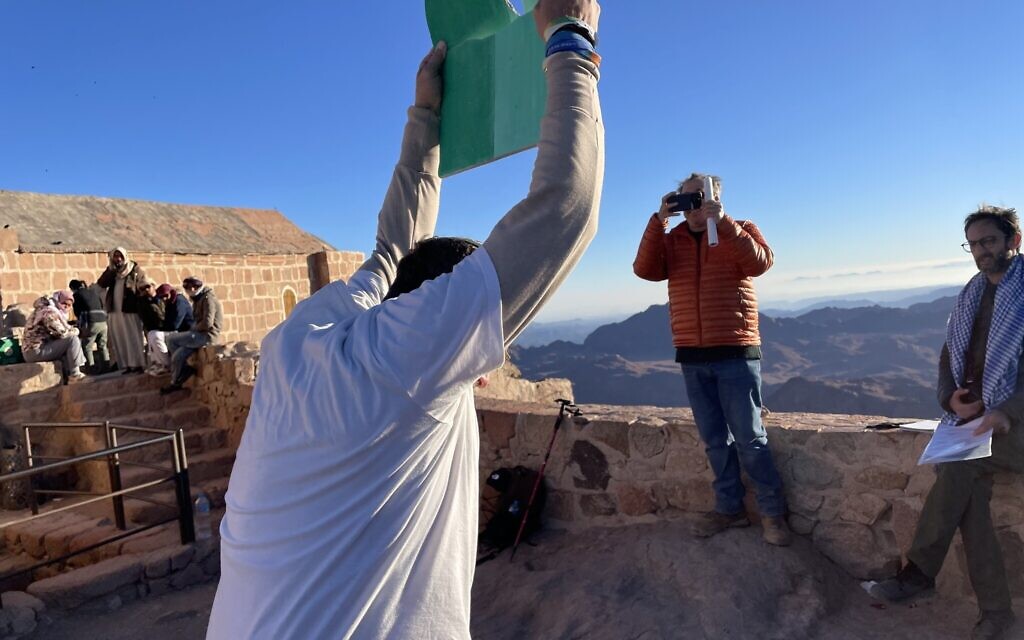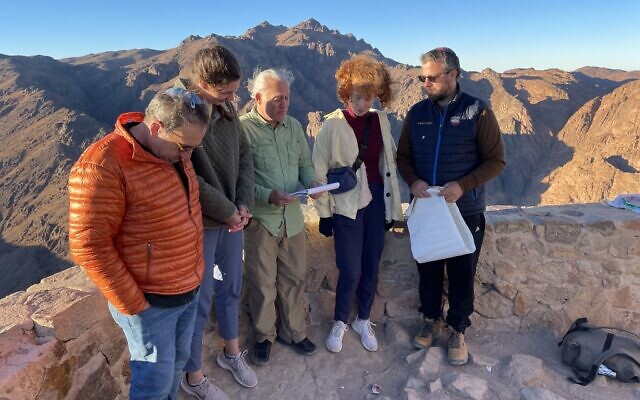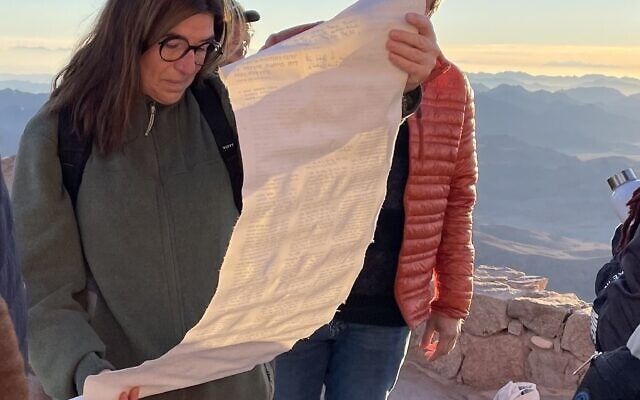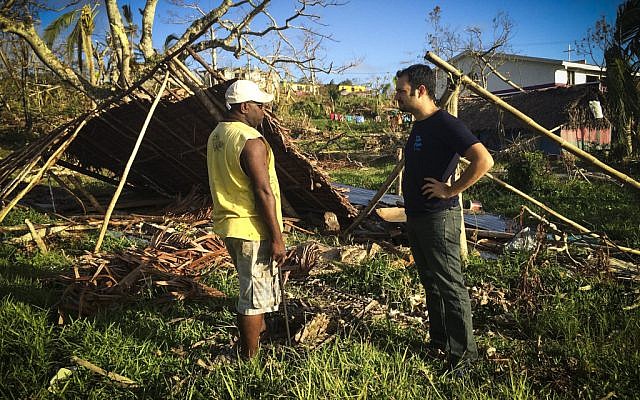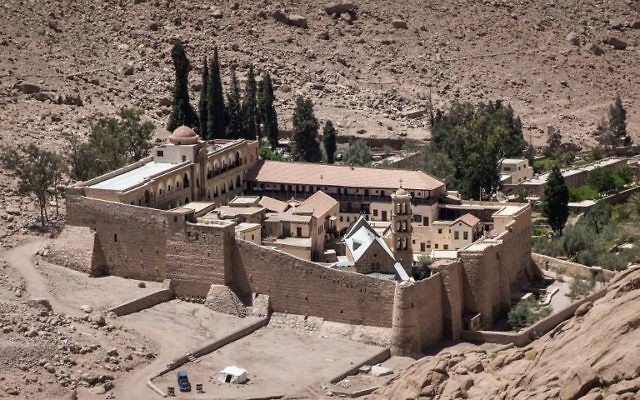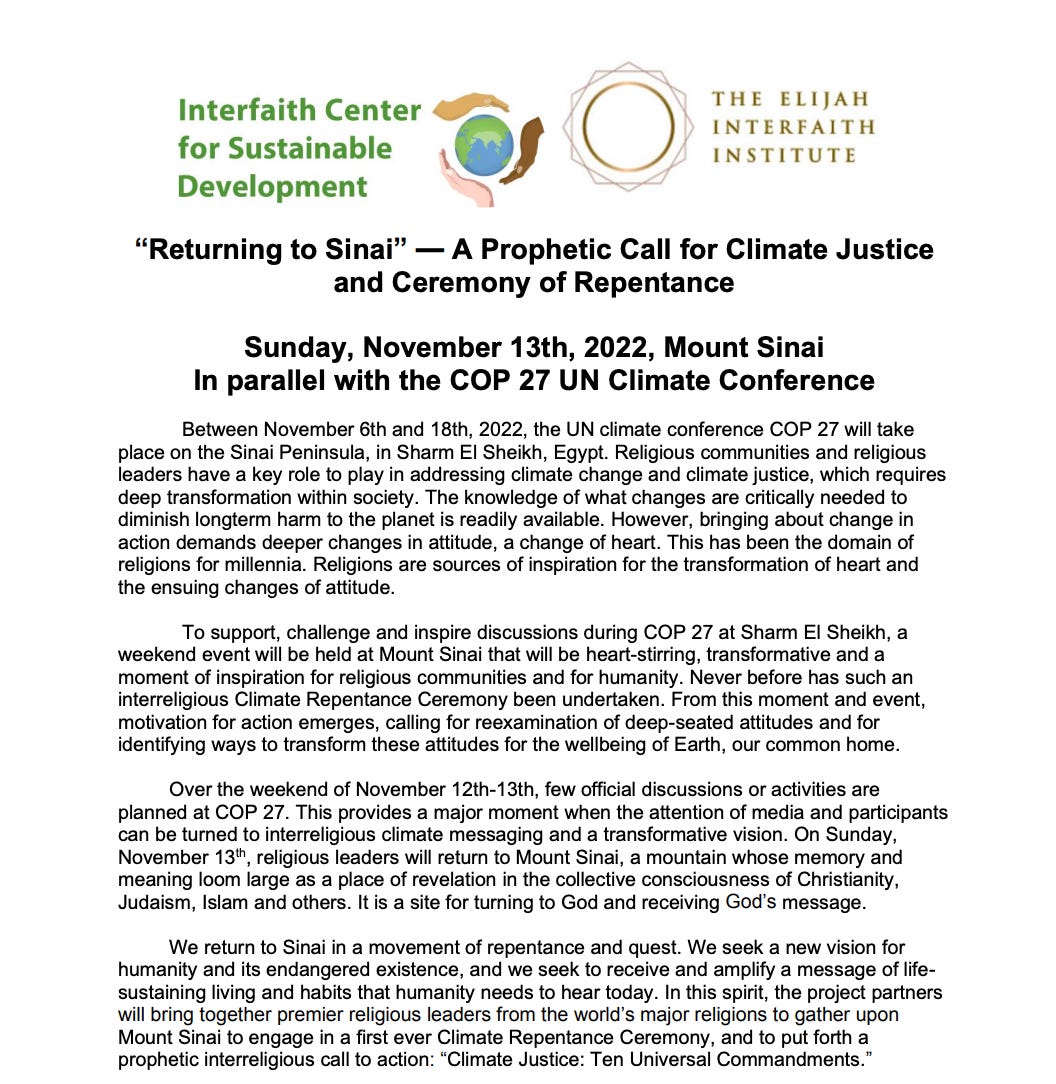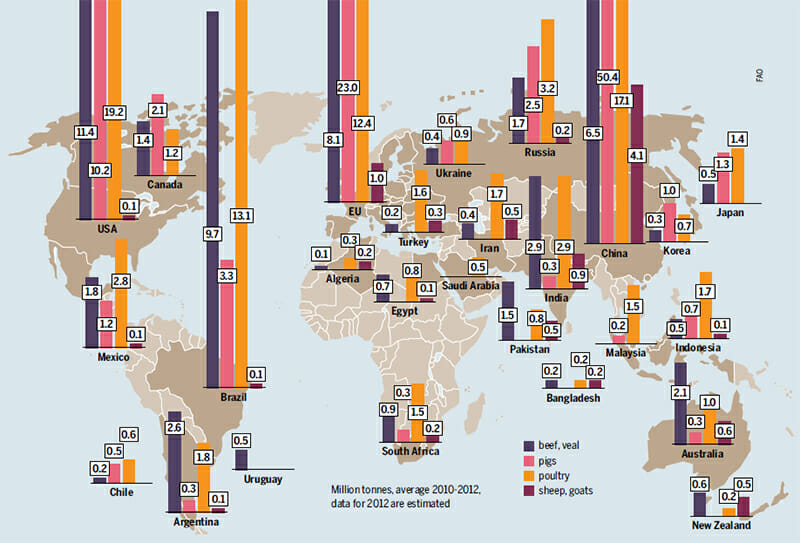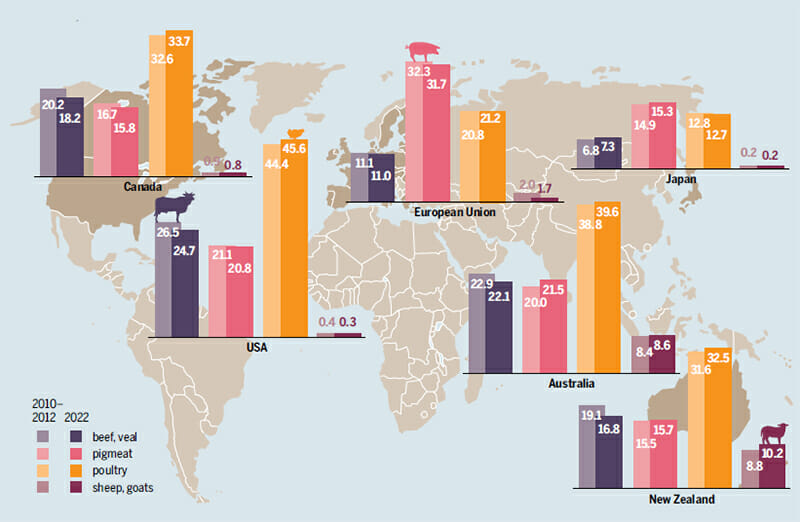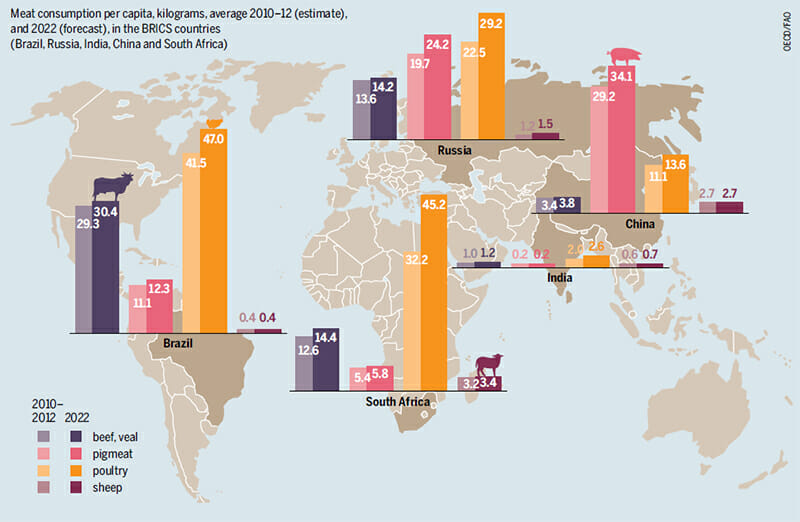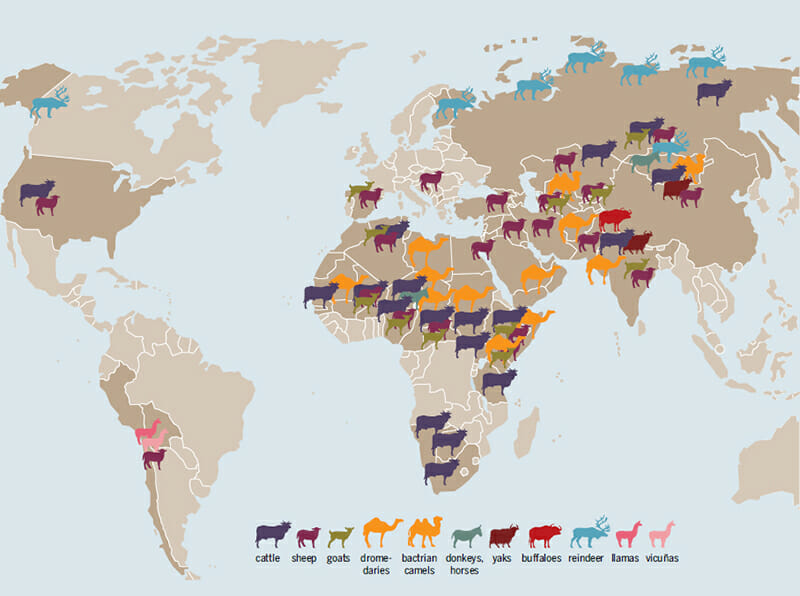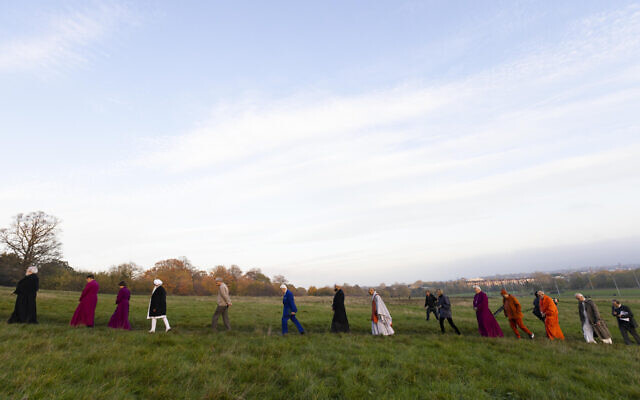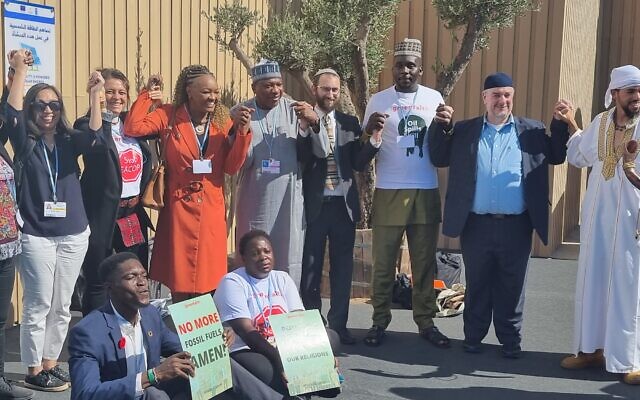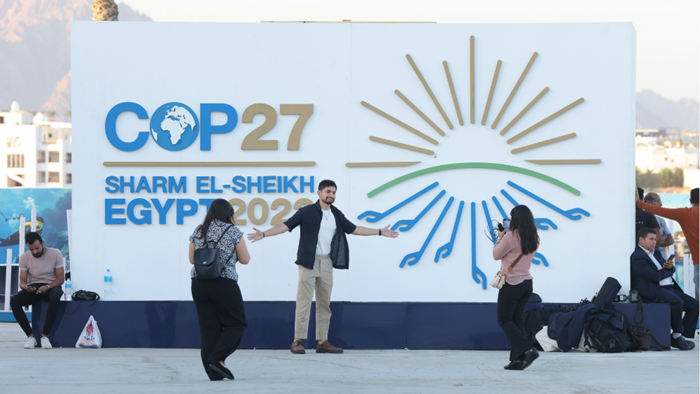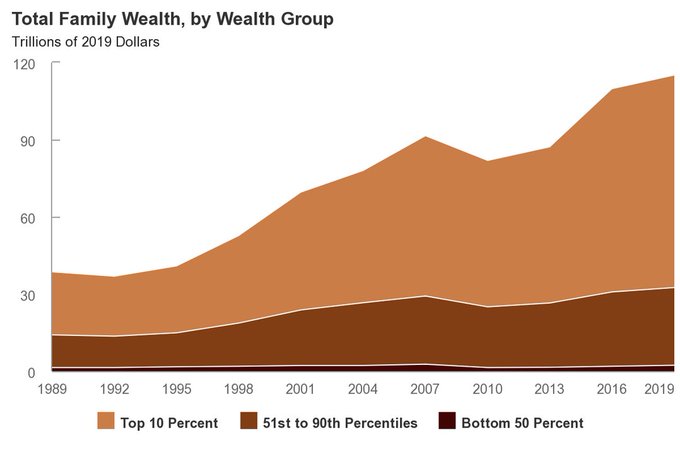Here is a briefing, though it is not brief, on what has occurred so far at the COP27 Summit and Call to Repentence for CLIMATE JUSTICE on Mt Sinai.
I have made comments throughout this post, so I will keep this short. I pray that God will help people to recognize that what is going on in the Summits, Conferences, Assemblies has nothing to do with caring for the Earth or for the poor and hungry masses. The AGENDA they are pushing is for the benefit of the elite and the establishment of their New World Order.
Activists smash tablets atop ‘Mount Sinai’ to launch faith-based climate push
Saying officials gathered at COP summit need to do more, Sinai Climate Partnership will seek to recruit religious leaders globally to lobby for faster action on climate change
spacer
Stalinist COP27 edits out blasphemous Mount Sinai “Ten Climate Commandments
Spot the difference.
The COP27 Climate conference is taking place between November 6th to 18th at Mount Sinai. Due to widespread criticism of their “Ten Climate Commandments”, due to be delivered today (Sunday 13th November) in a religious ceremony on the mountain many believe is the biblical Mount Sinai, they have edited what many would see as a blasphemous term from their websites, with no changelog.
Jordan Peterson is calling this ceremony the start of a new climate religion.
SPOT THE DIFFERENCE

NOW

THEN
Notice in the version from October 26 it originally said, “Climate Justice: Ten Universal Commandments.”

NOW
Here is today’s version: they have displaced or removed the religious desert imagery, and changed it to “Ten Universal Principles for Climate Justice.”

ELIJAH INTERFAITH INSTITUTE Suddenly loses their pdf.
The Elijah Interfaith Institute’s pdf on the subject has suddenly disappeared completely:
THEN
NOW
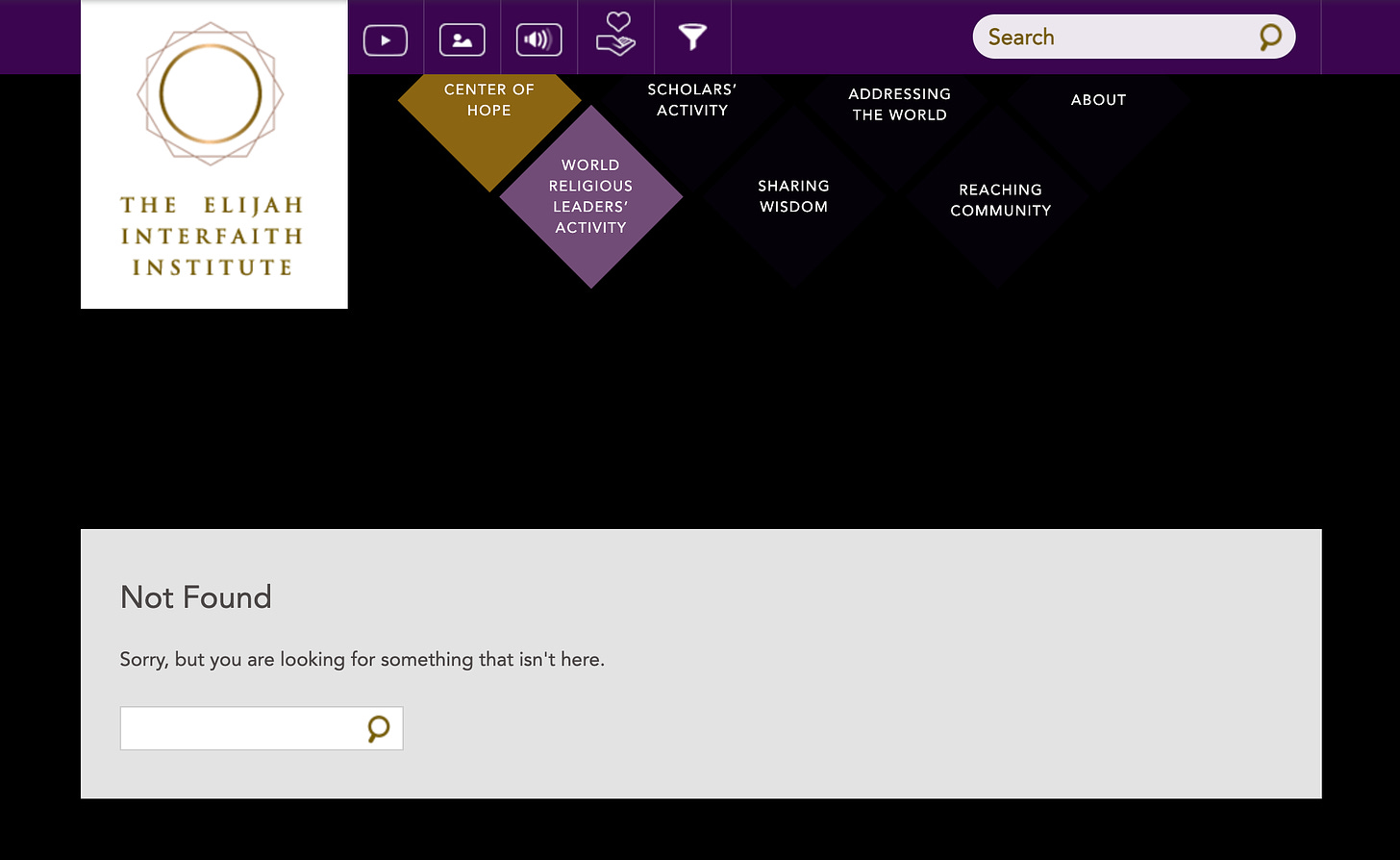
This article in Newsweek also bears witness to the original, for it includes the journalist’s suggestions for the 10 Climate Commandments plus one:

Stalinism in action
SPOT THE DIFFERENCE


FirstFactCheck is a reader-supported
REPORTER’S NOTEBOOK
In a statement, Danish development minister Flemming Møller Mortensen said that a visit to flood-stricken areas of Bangladesh this spring helped inspire the pledge.
“It is grossly unfair that the world’s poorest should suffer the most from the consequences of climate change, to which they have contributed the least,” Mortensen said.
| (Ya, that sounds reasonable to caring humans, however, hasn’t that always been the cry of have nots? Isn’t that what the Bible calls envy and covetousness? |
| To covet is to have an excessive desire to possess what belongs to another. Usually related to tangible items like property, covetousness is an intense craving or selfish desire that threatens the fundamental rights of others ( Exodus 20:17; Joshua 7:21 ). |
Loss and damage funding has long been a rallying cry for climate justice advocates and leaders from vulnerable countries. (That is probably why they prevent the aid sent from the citizens of wealthier nations from ever getting to the place where it is needed. Greedy figureheads and organizations keep what they want and usually the rest is destroyed or left sitting on runways and harbors. They want to be sure the world buys their BS about the UN advocating for the helpless.) Wealthy nations, including the United States, have rebuffed those calls, worried that any kind of financial commitment would imply legal liability for climate change’s escalating toll.
| First, that is a very legitimate concern as we have seen the way everything is politicized and how the actions are bent and twisted in the media. |
| But, also, because there is no guarantee that any money or other physical support would end up in the place it was intended or where it is needed. We live in a totally corrupt and wicked society. |
| I for one, certainly do not trust the United Nations or anything with which they are associated. I think they should be disbanded. My personal opinion to which I am entitled. |
But the issue (loss and damage funding) has gained traction amid increasing devastation from climate disasters, such as the drought-fueled famine in East Africa and Pakistan’s recent deadly floods. Some 400 activist groups released a letter this month demanding that finance for loss and damage be added to the agenda for this November’s U.N. climate negotiations in Sharm el-Sheikh, Egypt. [Who are activist groups (likely organized by guys like SOROS) that they can DEMAND and again, THE UN HAS NO POWER!]
At last year’s talks in Glasgow, Scotland became the first government contributor to a loss and damage fund. (As a constituent country of the United Kingdom, Scotland is not a U.N. member state.) Belgium’s Wallonia region pledged another million euros to the cause.
Denmark’s investment is the biggest yet — though it pales in comparison to the financial toll wrought by climate change each year, activists say. Recovery from the floods in Pakistan alone is estimated to cost upward of $10 billion.
I have an idea, let’s uncover all the corporations, organizations and governments that are employing Weather Modification, and FORCE THEM TO STOP!!!
According to an announcement from the Danish foreign ministry, the pledge includes 40 million Danish kroner — about $5.4 million — to work with civil society groups (what kind of groups? who has oversight over them? How will the funding be distributed and how will dispersments be recorded? and who will track the results? Who will make the determinations on how to address specific recurring events?) on helping communities adapt to climate change and addressing loss and damage, especially in Africa’s Sahel region. It also sets aside millions for “strategic efforts” around loss and damage negotiations ahead of the upcoming talks in Egypt. (Climate Change is the new politically correct term for what was first being called “The New Ice Age”, then they found the world was not getting colder, so it became “Global Warming” which also turned out to be not valid. So they created weather disasters and changed the name to “CLIMATE CHANGE”. It is all BS!! Not that our Climate isn’t changing, it just is not changing for the reasons they state. The elite are designing the weather. By their own admission on some forms and occultly on others.)
Harjeet Singh, head of global political strategy at the nonprofit Climate Action Network, called Denmark’s pledge “significant.” But he pointed out that about a third of the promised funding will go to the InsuResilience Global Partnership, a U.N.-organized program through which private companies provide disaster insurance to those most vulnerable from climate change. (There you go, sure that is the solution, insurance. NOT!!! Insurance, in my opionion, is the GREATEST CRIME EVER COMMITED! INSURANCE does nothing but raise the cost of everything. Poor people and poor nations cannot afford Insurance. Besides, Insurance companies are NOTORIOUS for not PAYING OUT. They will find loop holes or create them to avoid paying claims at any cost. If the funds are going to INSURANCE… We should all FIGHT HARD TO STOP THIS PROGRAM! Insurance is a SCAM!)
This setup “will create business for European corporations in the developing countries, eventually making vulnerable people pay for the premium toward losses and damages from climate disasters,” Singh said. He is absolutely right!
The Danish embassy was not immediately available for comment.
spacer
spacer
6 days agoNovember 8, 2022
The second day of COP27’s Climate Implementation Summit saw world leaders raise their voices for concrete action, particularly on adaptation and the thorny issue of loss and damage. (again, the term world leaders is misleading. They want you to think that our nations government heads are participating. Though they may have some government personnel, they are mostly comprised of private interests, NGOs, Corporations, wealthy elite and Religiou leaders of many different pagan faiths.)
During a high-level event, the COP27 Presidency launched the Sharm el-Sheikh Adaptation Agenda to rally global action around 30 outcomes that are needed to address what the UN Environment Programme (UNEP) has described as the climate ‘adaptation gap’. (Just what are those outcomes and who created them? Who determined what was “CLIMATE CHANGE” loss and damage? Who determined what caused the climate changes? Who designed and developed their adaptation map and plan? AND WHAT ARE THE DETAILS?)
The agenda would enhance resilience for four billion people living in the most climate vulnerable communities by 2030. It has been dubbed the first comprehensive global adaptation-focused plan to rally both governments and non-State actors behind a shared set of actions.
According to the Intergovernmental Panel on Climate Change (IPCC), nearly half the world’s population will be at severe risk of climate change impacts by 2030, even with global warming of just 1.5-degrees.
 In response to the devastating impacts of climate change affecting vulnerable people all over the world, the COP27 Presidency today launches the Sharm-El-Sheikh Adaptation Agenda in partnership with the High-Level Champions and the Marrakech Partnership.
In response to the devastating impacts of climate change affecting vulnerable people all over the world, the COP27 Presidency today launches the Sharm-El-Sheikh Adaptation Agenda in partnership with the High-Level Champions and the Marrakech Partnership.
Who are the UN Climate Change High-Level Champions? Feb 28, 2022High-Level Champion of United Kingdom: Nigel Topping Mr. Nigel Topping was the CEO of We Mean Business until December 2019, where he drove radical collaboration for climate action among NGOs working with the world’s most influential businesses.
Marrakech Partnership – What is COP 26 The Marrakech Partnership established three initiatives to raise ambition: The Climate Ambition Alliance (CAA) – to bring together countries, businesses, investors, cities and regions. Under the CAA, engagement with countries is led by the governments of Chile and the UK. Engagement with non-government actors is led by the High-Level Climate Champions…
The Sharm-El-Sheikh Adaptation Agenda outlines 30 Adaptation Outcomes to enhance resilience for 4 billion people living in the most climate vulnerable communities by 2030. Each outcome presents global solutions that can be adopted at a local level to respond to local climate contexts, needs and risks and deliver the systems transformation required to protect vulnerable communities to the rising climate hazards, such as extreme heat, drought, flooding, or extreme weather. It comes as research warns that nearly half the world’s population will be at severe risk of climate change impacts by 2030, even in a 1.5-degree world according to analysis published by IPCC AR6 WG II Report and the UN Climate Change High-Level Climate Champions.
Collectively, these outcomes represent the first comprehensive global plan to rally both State and non-State actors behind a shared set of adaptation actions that are required by the end of this decade across five impact systems: food and agriculture, water and nature, coastal and oceans, human settlements, and infrastructure, and including enabling solutions for planning and finance.
The 30 Adaptation Outcomes include urgent global 2030 targets related to:
Transitioning to climate resilient, sustainable agriculture that can increase yields by 17% and reduce farm level greenhouse gas (GHG) emissions by 21%, without expanding agricultural frontiers, and while improving livelihoods including of smallholder farmers
Protecting and restoring an estimated 400 million hectares in critical areas (land and freshwater ecosystems) supporting indigenous and local communities with use of nature-based solutions to improve water security and livelihoods and to transform 2 billion hectares of land into sustainable management.
Protecting 3 billion people by installing smart and early warning systems
Investing USD 4 billion to secure the future of 15 million hectares of mangroves through collective action to halt loss, restore, double protection and ensure sustainable finance for all existing mangroves.
Expanding access to clean cooking for 2.4 billion people through at least USD 10 billion/year in innovative finance.
Mobilising USD 140 to USD 300 billion needed across both public and private sources for adaptation and resilience and spur 2,000 of the world’s largest companies to integrate physical climate risk and develop actionable adaptation plans
In a sign of recognition of this major milestone for the global adaptation process, the Adaptation Agenda is being driven by the COP27 Presidency, the High-Level Champions and Marrakech Partnership and underpinned by the 2,000+ organisations spanning 131 countries in the Race to Resilience campaign.
At the launch today, COP27 President Sameh Shoukry and High-Level Champions Dr. Mahmoud Mohieldin and Nigel Topping, called on all State and non-State actors to get behind this critical Agenda.
COP27 President and Egypt’s Minister of Foreign Affairs Sameh Shoukry: “It is our aspiration that the Sharm-El-Sheikh Adaptation Agenda represents a significant contribution to enhancing global action on adaptation and resilience as an utmost priority. The COP 27 Presidency is keen to develop a governance arrangement to secure continuity in scope, priorities and reporting. It will lead the work building on: a) the adaptation focused initiatives launched by COP27 Presidency at COP27 that shall accelerate action across system interventions and b) the adaptation and resilience outcome targets identified by the High-Level Champions. The Marrakech Partnership, the High-Level Champions and a number of specialised UN agencies will work together- as partners- to accelerate an agenda of global adaptation action through following up on the implementation of Sharm-El-Sheikh Adaptation Agenda. The COP 27 Presidency will receive – before COP 28 – from the High-Level Champions, the Marrakech Partnership and a number of specialised UN agencies a report on the progress achieved in implementing the Sharm-El-Sheikh Adaptation Agenda. Overall progress on implementation will be reported back to COP 28.”
Dr. Mahmoud Mohieldin UN Climate Change High-Level Champion for COP27: “The Outcomes were identified jointly with a broad range of active stakeholders, reflecting existing and new global targets based on science along with local knowledge and initiatives. The Outcome targets will continue to be refined and expanded by the High-Level Champions with inputs from State and non-State actors to support their operationalization. At the core of the Outcomes is the recognition that adaptation is often locally-driven and globally relevant, whilel simultaneously needing to address equity, diversity and justice. This agenda will accelerate the Race to Resilience’s global goal of making 4 billion vulnerable people more resilient by 2030. Of particular importance is the role of key enablers like finance and planning to accelerate adaptation in the near-term. USD140 to USD300 billion needs to be mobilised across both public and private sources annually with a minimum target of 50% for adaptation, as called by UN Secretary-General Antonio Guterres. Of particular concern and focus is Africa, where the private finance share in the total financing of climate adaptation efforts is not more than 3% ($11.4 billion). Seven times that amount will be needed annually until 2030.”
Simon Stiell UNFCCC Executive Secretary: “The Sharm el-Sheikh Adaptation Agenda firmly puts key human needs at its core, along with concrete, specific action on the ground to build resilience to climate change. As the growing number of climate emergencies throughout the world clearly shows, focusing on adaptation is a crucial, pressing necessity. The Adaptation Agenda outlines multiple actions and combines the commitments of governments and non-Party stakeholders into a joint vision and a joint plan. We need all stakeholders on board to deal with current and future impacts of climate change, and this is a prime example of how that can happen.”
The Agenda emphasises the urgency for counting with evidence-based, actionable adaptation plans for all actors, making climate risks visible and accessible, and to deploy the locally-led adaptation principles.
At COP27, the Climate Champion’s Team also released technical reports across these impact systems, exploring the adaptation outcomes and partner implementation underway.
The Sharm-El-Sheikh Adaptation Agenda:
Food Security and Agriculture Systems
Climate resilient, sustainable agriculture increases yields by 17% and reduces farm level greenhouse gas (GHG) emissions by 21%, without expansion of the agricultural frontier.
Halve the share of food production lost, and per capita food waste (relative to 2019).
Healthy alternative proteins capture 15% of the global meat and seafood market.
Healthy alternative proteins capture 15% of the global meat and seafood market.
The global consumption of fruits, vegetables, seeds, nuts and legumes increases 1.5 times.
Water and Nature Systems
Protection of 45 million hectares (lands and inland waters), 2 billion hectares sustainable management and 350 million hectares restoration of land securing legal indigenous and local communities with use of nature-based solutions to improve water security and livelihoods.
By 2025: financial institutions contribute to halting land conversion by eliminating commodity-driven deforestation from portfolios and tap into nature-based solutions investment opportunities of USD 354 billion/year needed by 2030.
Water systems are smart, efficient and robust with a reduction in water loss through leakage.
Wastewater systems maximise recycling and reuse alongside natural wetland filtration with zero environmental spillage.
Sustainable irrigation systems are implemented across 20% of global croplands to preserve water availability whilst supporting yield growth.
Human Settlements Systems
1 billion people have better design, construction and access to finance to live in decent, safe homes.
Smart and early warning systems reach 3 billion people.
USD 1 trillion invested in nature based solutions for communities in urban areas.
Harden social infrastructure to ensure access to basic and essential community services.*
Increased use of waste as a secondary resource boosts the livelihoods of informal workers and reduces open waste burning by 60%, lowering pollution levels and improving the health of local communities.
Ocean and Coastal Systems
Invest USD 4 billion to secure the future of 15 million hectares of mangroves globally through collective action on halting mangrove loss, restoring half of recent losses, doubling protection of mangroves globally and ensuring sustainable long-term finance for all existing mangroves.
Halt loss, protect and restore coral reefs to support people in tropical communities.
Halt loss, protect and restore seagrass, marshes, and kelp forests to support people in temperate communities.
Urban coastline is protected by grey and hybrid solutions.
Infrastructure Systems
A diverse set of energy generation sources enable affordable access to electricity for 679 million unconnected people and higher quality access for 1 billion underserved people through climate resilient energy systems.
4 billion people with access to clean cooking through at least USD 10 billion/year in innovative finance for clean cooking action worldwide.
585 GW of battery storage capacity and extension of transmission and distribution networks enable decentralised generation and consumption.
2 billion people access low-cost, clean vehicles and mobility solutions through the expansion of affordable public and private transport services.
Transport infrastructure is resilient to climate hazards through adoption of new technology, design and materials.
Cross-cutting: Planning
10,000 cities and 100 regional governments have evidence-based, actionable adaptation plans.
2,000 of the world’s largest companies developed actionable adaptation plans.
Universal access to the tools and information required to integrate climate risks into decision making from local to global levels.
Operationalisation of National Adaptation Plans and Locally-Led Principles, enabling adaptation in a country-driven localised and consultative manner.
Crosscutting: Finance
Private sector integrates physical climate risks into investment decisions and continues to innovate mechanisms for financing adaptation and resilience so as to enable the mobilisation of the USD 140 to USD 300 billion that will be needed across both public and private sources.
Public finance actors increase provision of climate finance and allocate 50% of climate funds to adaptation and resilience.
Global property and casualty insurance sector has an industry capabilities framework, actively supports project implementation, and institutionalises a longer-term industry approach to climate adaptation.
Notes to editors
For any press enquiries contact rtz@brunswickgroup.com
COP27 President Sameh Shoukry invited governmental and non-State actors to join the agenda during the Conference and beyond.
“This agenda brings together all parts of society.” UN climate change chief Simon Stiell said during the event, reminding delegates that COP27 is all about turning ambitions into results.
“Human needs must be at heart of what we do… The mantra is implementation, implementation, implementation,” he added.
New commitments on adaptation and loss and damage
Later during a press encounter, Mr. Shoukry thanked some countries that during their national statements announced new commitments for adaptation.
“Specific pledges can help take us forward. I commend Rishi Sunak’s announcement that the United Kingdom will triple its adaptation finance by 2025, going even beyond the promised last year in Glasgow,” he said.
Meanwhile, Germany announced $170 million for loss and damage, and Belgium € 2.5 million, specifically to Mozambique, which suffered terrible losses last year due to extreme rains.
Austria also announced $50 million for loss and damage, and Scotland, which had previously pledged £2 million, announced an additional £5 million.
So far only five European countries – Austria, Scotland, Belgium, Denmark and Germany – have committed to address loss and damage.
Ursula von der Leyen, President of the European Commission, told leaders on Tuesday to follow her region’s example of committing to climate financing to the developing world.
“Those most in need in the developing world must be supported in adapting to a harsher climate. We urge our partners in the global north to stand by their climate finance commitments to the global south. Team Europe is stepping up … despite COVID, despite the Russian war”, she said.
Meanwhile, small island developing states continued denouncing developed countries for not delivering their finance promises.
“We will fight unrelentingly for climate justice, including in the international courts,” warned Gaston Brown, Prime Minister of Antigua and Barbuda.

Adaptation in Africa
At a COP27 leaders’ event on accelerating adaptation in Africa, Secretary-General António Guterres also made a call for more adaptation finance.
“We need to invest massively in adaptation if we want to be able not to spend much more money in addressing the consequences of the disaster,” adding that “it is very clear, we need to be able to share adaptation and mitigation in climate finance”.
Mr. Guterres reiterated that multilateral development banks have a huge capacity to mobilize and to leverage private finance that is not being used.
Nana Akufo-Addo, the President of Ghana, also at the event, said that while Africa has done the least to cause climate change, the continent’s people, especially the youth, are suffering the worst impacts.
“Support and join in the fight against climate change,” he urged world leaders.
Meanwhile, in his national statement, Paul Kagame, the President of Rwanda, argued that during the COVID-19 pandemic, external financing hadn’t worked for vulnerable nations.
“The most valuable contribution that developed countries can make is to reduce their emissions faster while investing in Africa to build sustainable, green power. Questioning whether Africa is ready to make use of climate finance should not be used as an excuse to justify inaction,” he stated.

Other highlights
More initiatives were launched today, including the Africa Carbon Markets initiative, which aims to expand Africa’s participation in voluntary carbon markets by setting goals for the continent and developing a roadmap of action programmes that will be implemented over the next few years to meet those goals.
In other highlights, one small island nation demanded at COP27 an international fossil fuel non-proliferation treaty, to phase out the use of coal, oil and gas.
“The warming seas are starting to swallow our lands – inch by inch. But the world’s addiction to oil, gas and coal can’t sink our dreams under the waves,” Tuvalu Prime Minister Kausea Natano said.
Last September, at the UN General Assembly, Vanuatu had called for the establishment of this treaty as well.
Leaders from non-governmental organisations (NGOs) also made a call today for supporting developing countries.
“Climate disasters leave a long shadow … for decades, years or even generations, and there is a growing recognition that we cannot leave vulnerable communities who have done little for this crisis to deal with these global crises on their own,” said Theresa Anderson, Climate Policy Coordinator from NGO Action Aid during a press conference.
She highlighted that developing countries represent six out of seven people in the planet, and they are all insisting that COP27 establish a funding facility to address loss and damage.
“Wealthy polluting countries need to look beyond their own noses, recognize the importance of a new financing facility that can help devasted countries to pick up the pieces and recover in the aftermath of climate disasters”, the activist underscored.
spacer
I wanted to share this article with you. I found this when I was looking at different maps on the search engine. It is very interesting. Give some enlightenment about what the UN has in mind for our future. Well, at least those of us who survive.
spacer
The new Meat Atlas, from a pair of European non-profits, is stacked full of interesting information about the future of meat consumption — and lots of beautiful maps. Here’s four of our favorites.

Meat production is up worldwide (remember this was written in 2014), but not in the expected ways or places. As a global trend, chicken and pork are taking up a larger share of the world’s meat supply while lamb and beef herds decline. The reason? As the world moves toward practices of industrial agriculture, it needs animals with a high feed efficiency that can be fit into small spaces. Birds and pigs fit the bill.
During Sheep Week, we at Modern Farmer wrote much about the perils of lamb, but I had a hard time believing the global decline of beef production reported in the atlas. While the U.S. remains the world’s largest beef producer, the industry expects a 4 to 6 percent decline in production numbers over 2013. Other big-time beef producers like Brazil and Canada are also bringing less meat to market.
India, strangely, is a bright spot for the beef industry, as buffalo meat production has doubled between 2010 and 2013, making the subcontinent the world’s largest beef exporter.
So as world meat production doubles by 2050, expect to hear much more oinking and clucking than mooing and baaing.
The Developing World Driving Future Demand
Meat consumption per capita, kilograms, average 2010-12 (estimate), and 2022 (forecast). Data via OECD/FAO.
Has the developed world reached peak meat? In the U.S., meat consumption dropped 9 percent from 2007 to 2013. Germans ate 5 pounds less meat per person in 2012 than they did into 2011. The industry blames it on a cold summer killing the barbecue season, while others point to trending low-meat diets and health concerns. Whatever the cause, meat consumption patterns leave the rising demand to the developing economies of India and China.
Meat consumption per capita, kilograms, average 2010-12 (estimate), and 2022 (forecast). Data via OECD/FAO.
A rise in population and rapid urbanization has driven and increasing demand for meat in the so-called BRICS (Brazil, Russia, Indian, China, and South Africa). Between 2003 and 2012, their meat consumption rate rose 6.3 percent a year, and is expected to keep growing at a steady pace through the decade.
To meet the demand, says the atlas, “factory farms, similar to those known in the industrialized world since the 1950s, will have to be established everywhere.” Those future farms will require an enormous increase in feed grains like soybeans, which will have to double in yield by 2050.
Huge Changes in Animal Husbandry
All told, the shifts are leading to huge changes in the ways the world raises animals. The atlas identifies two groups — smallholders and pastoralists — that could drown under a wave of industrialized animal husbandry, even as their methods hold the promise of a healthy environment. Smallholders are farmers who raise a small number of animals in conjunction with a small number of crops. Pastoralists, better known as herders, tend to specialize in converting scrublands into animal protein through migratory herding. The atlas recognizes a fair amount of overlap between those two groups.
Future demand for meat might not mean a complete embrace of industrial methods. Radical ideas — like cricket farming or lab grown meat — could play a role in meeting skyrocketing demand for animal protein. But time and again, the beautiful maps in the meat atlas beg a single question: Is cheap meat really worth it?
spacer
spacer
spacer
Religious leaders join world-first inter-faith ceremony on climate change
Similar ceremonies to the one in London were set to happen in Sharm El-Sheikh and other locations around the globe.
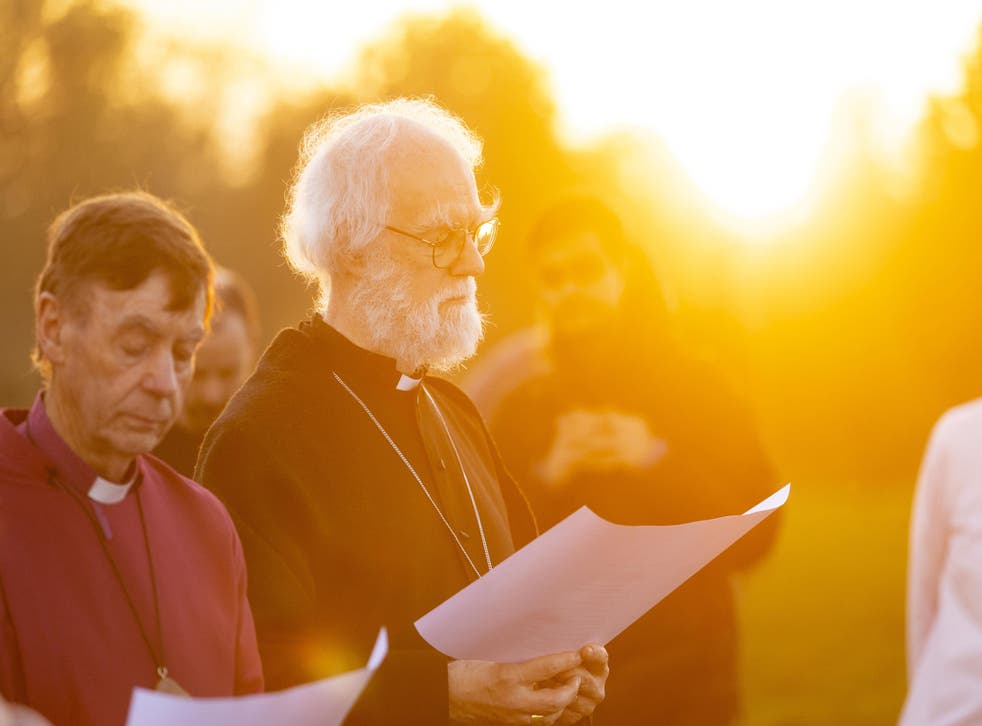
People must confront the “destructive habits” that limit their efforts to tackle climate change, a world-first inter-faith ceremony has heard.
A former archbishop of Canterbury gathered in London alongside leaders from a range of other religions to “offer our voice as a contribution” to work by politicians and negotiators at the Cop27 climate summit in Egypt.
Representatives of the Christian, Jewish, Muslim, Hindu, Buddhist and Sikh faiths joined the UK event organised by the Elijah Interfaith Institute on Sunday afternoon.

Similar ceremonies were set to happen in Sharm El-Sheikh and other locations around the world.
The faith leaders climbed Parliament Hill, with scrolls bearing “Ten Principles for Climate Repentance”, in a nod to the 10 Commandments revealed to Moses on Mount Sinai
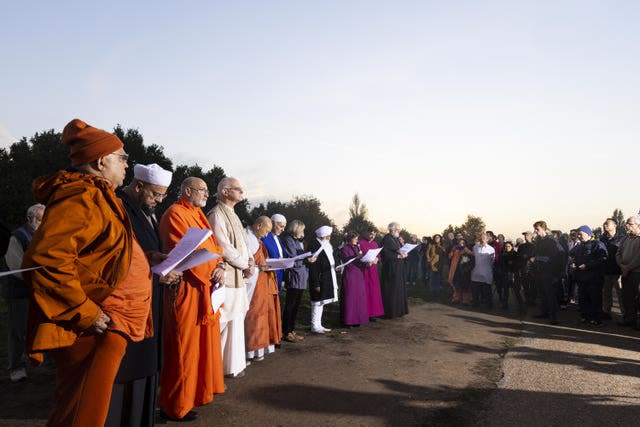
The leaders were also taking part in a two-hour multi-faith Climate Repentance Ceremony at a synagogue in north London on Sunday evening.
Organiser Rabbi Alon Goshen-Gottstein said he hoped the day’s ceremony would set a precedent for future events.
Speaking beforehand, he said: “In order to cope with climate change we need to be transformed. We need to not simply make political decisions, we need to change our hearts, and to change our hearts, that’s the business of religion.”
He said world leaders must know “that they’re not negotiating on behalf of a country or set of interests, but on behalf of a deeper vision of humanity and how it’s placed in the world”.
The rabbi said a specially created oath developed in partnership with the Peace Department non-profit organisation could help motivate people to do more when it comes to climate change.
It says: “I, as a person of hope, pledge to do my best to make the world better for people and the planet each day that I may live.”

In an interview on Friday, Dr Williams urged the Government to insulate more homes and take “a more edgy role internationally” to tackle the climate crisis.
spacer
Religious leaders join world-first interfaith ceremony on climate change
Organiser Rabbi Alon Goshen-Gottstein said he hoped the day’s ceremony would set a precedent for future events.
People must confront the “destructive habits” that limit their efforts to tackle climate change, a worldfirst inter-faith ceremony has heard.
A former archbishop of Canterbury gathered in London alongside leaders from a range of other religions to “offer our voice as a contribution” to work by politicians and negotiators at the Cop27 climate summit in Egypt.
Representatives of the Christian, Jewish, Muslim, Hindu, Buddhist and Sikh faiths joined the UK event organised by the Elijah Interfaith Institute on Sunday afternoon.
Similar ceremonies were set to happen in Sharm El-Sheikh and other locations around the world.
Organisers said it was the first multi-faith ceremony to “seek forgiveness for climate sins” and hoped it would “inspire humility and action” during Cop27, which ends on November 18. (“Sins” against whom?)
|
The biblical definition of sin is found in 1 John 3:4: “Sin is the transgression of the law” (King James Version). To sin is to transgress, or break, the law of God. The Bible says a lot about sin. It tells us that all have sinned (Romans 3:23) and that sin leads to death (Romans 6:23).
|
|
Nov 5, 2022 middle english sinne, from old english synn, syn “violation of divine law, offense against god; moral wrongdoing,” also “injury, mischief; enmity, feud; guilt, crime, misdeed,” from Proto-Germanic *sundiō “sin” (source also of Old Saxon sundia, Old Frisian sende, Middle Dutch sonde, Dutch zonde, German Sünde “sin, transgression, trespass, offense,” extended forms).
|
As the event began, Dr Rowan Williams told those gathered: “As religious leaders we offer our voice as a contribution to the gathered leaders (at Cop 27) and to humanity.
“We must also confront honestly the destructive habits which continue to limit the possibilities and the hopes of human beings, in a call for wake up and self-examination.”
The faith leaders climbed Parliament Hill, with scrolls bearing “Ten Principles for Climate Repentance”, in a nod to the 10 Commandments revealed to Moses on Mount Sinai, which is about 125 miles away from the Cop27 conference.
The leaders were also taking part in a two-hour multi-faith Climate Repentance Ceremony at a synagogue in north London on Sunday evening.
Organiser Rabbi Alon Goshen-Gottstein said he hoped the day’s ceremony would set a precedent for future events.
Speaking beforehand, he said: “In order to cope with climate change we need to be transformed. We need to not simply make political decisions, we need to change our hearts, and to change our hearts, that’s the business of religion.” (Only GOD can change a heart)
He said world leaders must know “that they’re not negotiating on behalf of a country or set of interests, but on behalf of a deeper vision of humanity and how it’s placed in the world”.
The rabbi said a specially created oath developed in partnership with the Peace Department non-profit organisation could help motivate people to do more when it comes to climate change.
|
oath, sacred or solemn voluntary promise usually involving the penalty of divine retribution for intentional falsity and often used in legal procedures. It is not certain that the oath was always considered a religious act. Such ancient peoples as the Germanic tribes, Greeks, Romans, and Scythians swore by their swords or other weapons. Which were symbols of their deities
|
|
middle english oth, from old english að “judicial swearing, solemn appeal (to deity, sacred relics, etc.), in witness of truth or a promise,” from proto-germanic *aithaz (source also of old norse eiðr, swedish ed, old saxon, old frisian eth, middle dutch eet, dutch eed, german eid, gothic aiþs “oath“), from pie *oi-to- “an oath” (source also of …
|
|
This is why James tells us, “do not swear, either by heaven or by earth or by any other oath, but let your “yes” be yes and your “no” be no, so that you may not fall under condemnation” (James 5:12). James is saying what Jesus said. Just say yes or no and leave it at that. There is no need to swear you’ll do or not do something.
|
|
The origin of this oath may be traced to the Roman law, and the kissing the book is said to be an imitation of the priest’s kissing the ritual as a sign of reverence before he reads it to the people
|
spacer
It (the oath) says: “I, as a person of hope, pledge to do my best to make the world better for people and the planet each day that I may live.”
In an interview on Friday, Dr Williams urged the Government to insulate more homes and take “a more edgy role internationally” to tackle the climate crisis.
He said he was “disappointed” with Prime Minister Rishi Sunak’s decision – later reversed – not to attend the Cop27 climate summit, and expressed “a lot of sympathy” with the argument that “shock tactics” used by climate protest groups such as Just Stop Oil and Extinction Rebellion can “break through to people”.
Asked if disruptive protests are justifiable, he said: “Mixed feelings, to be honest. Tactically speaking, I do take the point some people are really, seriously alienated by actions like this, especially if they’ve been sitting on the M25 for five hours or whatever it might be.
“But at the same time, I’ve got a lot of sympathy with the idea that some kinds of shock tactics do break through to people, and my own question is always: how far can you go with shock tactics before you really lose the audience?
“I think I’d echo what I think (the columnist) Polly Toynbee said in The Guardian the other day: if you’re really angry and put off by the actions of Just Stop Oil protesters, what exactly are you doing, what are you going to do to turn all this around?” (The truth is that many of us are not buying the shock tactics and have seen no evidence that a Climate Crisis exists or that the solutions presented by the Environmentalists have and legitimacy or that any funds and support provided to them will not go to corrupt individuals, organizations and/or governments. So, we are not willing to do anything they would like to see us do. And they have no right to force us to comply with their wishes.)
spacer
Multifaith leaders to gather in Israel and around the world for ‘climate repentance’
Jews to join forces with Muslims, Christians, Hindus and Buddhists; citing security concerns, Egypt refuses to let event be held at site believed by many to be biblical Mount Sinai
Jews, Muslims, Christians, Hindus and Buddhists from Israel, Egypt, the US, India, Spain and the UK plan to gather Sunday around the world to call on global leaders to act for “climate repentance” and to implement ten climate principles.
The events — planned to take place in Jerusalem, London, the Egyptian resort of Sharm el-Sheikh and other locations — are timed to coincide with the United Nations COP27 climate conference currently being held in Egypt, which ends on November 18.
London’s event will be held at the foot of Parliament Hill.
Among the faith leaders expected to participate are Ecumenical Patriarch Bartholomew of Constantinople (Istanbul), Swami Chidanand Saraswati from India, Imam Faisal Abdul Rauf from the US, and Rabbi Jonathan Wittenberg from London.
Ecumenical Patriarch Bartholomew, who is also known as the Green Patriarch due to his dedication to environmental issues, released a statement ahead of the event decrying the “abuse of nature and the exploitation of its resources” as a “sin against God the Creator and the gift of creation.”
spacer
|
Evangelical repentance consists of (1) a true sense of one’s own guilt and sinfulness; (2) an apprehension of God’s mercy in Christ; (3) an actual hatred of sin ( Psalms 119:128 ; Job 42:5 Job 42:6 ; 2 co 7:10 ) and turning from it to God; and (4) a persistent endeavour after a holy life in a walking with God in the way of his commandments.
|
|
Repentance is a stage in Christian salvation where the believer turns away from sin. As a distinct stage in the ordo salutis its position is disputed, with some theological traditions arguing it occurs prior to faith and the Reformed theological tradition arguing it occurs after faith. [4]
|
|
To repent means to be convinced of another way, to change your mind or convictions. And in response to be convinced in your mind and heart, to change your actions. Repentance means turning from going your own way to going God’s way. What Repentance Is Not
|
spacer
Busiswa Dlamini is frustrated at the slow pace as her country confronts the effects of climate change. The Christian activist from Eswatini, the semi-arid southern African kingdom previously known as Swaziland, says as a young person, it is difficult to come up with solutions in the face of a system designed to continue the status quo.
She and representatives from dozens of other Christian churches and church-related groups in Africa, the United States, and Europe gathered in Nairobi, Kenya, last month for a two-day convocation about climate and its impact on hunger. The meeting was organized by Bread for the World and hosted by the All Africa Conference of Churches (AACC), which represents half a million Christians. (I am sorry to have to say this but these Christians are deceived. I understand that poor, hungry and hopeless people are grasping at any straw that offers the possibility of assistance. However, aligning themselves with the Agenda of the Elite and the UNITED NATIONS is the wrong plan. I have many posts that will demonstrate to you that the UN is not your FRIEND. These Christians should know better. GOD is the source of all hope and all good things come from HIM. Especially in Africa, but really these days in every nation there are millions who do not know or serve GOD. There in lies the problem. Instead of centering your efforts on Environmentalism, you should be focusing on TRUE REPENTENCE before the LIVING GOD seeking HIS Solutions to the problems. But, man wants to continue in their sin and error and FORCE those they perceive as having more than them to pay their way out of trouble. IN FACT, All Nations are in TROUBLE the only wealthy people in the world right now are the ungodly elite who steal everything from the rest of us. Americans, as I am sure all nations, are facing financial collapse. Really the third world countries who still know how to grow and hunt food are much better off than most of us in the “Industrialized” nations. We find ourselves at the mercy of the Scientists and Technologists. We don’t even know how to survive without jobs.)
The convocation produced a statement ahead of the 27th annual Conference of the Parties to the United Nations Framework Convention on Climate Change (COP27), which began in Egypt on Sunday. The meeting led to the signing of a faith leaders’ statement—A Faithful Voice on Hunger and Climate Justice—that organizers call “bold and prophetic.”
The statement urges governments around the world to pursue “meaningful change for those disproportionately affected by hunger and climate change.” (According to the UN’s Report that is actually 80 to 90% of the World! So, just who is supposed to carry everyone?) It says that leaders in the Southern hemisphere should develop and implement policies that will address ecological injustice, while governments in the Northern hemisphere should “fulfill all milestone commitments” made at previous UN Climate Change Conferences.
That includes delivering on promises of $100 billion every year to fight the effects of burning fossil fuels. (Honestly, this is the least of the problems. You need to wake up and realize that the elite are in CONTROL of everything. They control the weather and cause the disasters and diseases. They control the money. They control the food. You can rob those you consider to be the “wealthy nations” all you like, take everything they have…your position will be no better. The elite will keep you poor and once you are in their banking system and dependent on them for food and jobs… you will be slaves with the rest of us.)
“The extreme patterns of living and livelihoods of some of us cause the extreme suffering of our brothers and sisters: 10 percent of the world’s wealthiest individuals are responsible for around half of global greenhouse gas emissions,” it says. “As Christians from Africa, Europe, and North America, we share a fierce resolve to stand and work together to end the hunger crisis made worse by climate instability, to renew God’s creation, and to bring our planet into balance.” (The only ones living high on the hog are the
US participants included representatives from the Evangelical Environmental Network, the Faith and Justice Network, A Rocha USA, the United Methodist Church, the African Methodist Episcopal Zion Church, and Eugene Cho with Bread for the World.
“We were trying to model how the Western world could essentially come alongside those in Africa who are most impacted and are already doing a lot of the work,” said Jordan Teague, Bread for the World’s director for policy analysis and coalition building.
“One of the things that we heard the most from the [African] faith leaders that we talked with, and who eventually attended the convocation, was the promise unfulfilled,” Teague said. “All people should keep their word, but I feel especially for Christians, or people with a Christian identity, that it’s extremely important to keep the word that we say.”
In 2009, developed nations committed to give $100 billion per year to developing countries to fight climate change, and to reach that goal by 2020. The target has been missed. Combined, adaptation and mitigation finance funding fell at least $17 billion short in 2020.
There will likely be a push for the fulfillment of those promises at COP27, analysts say, despite the fact that many rich countries and their citizens are facing a cost-of-living crisis on the back of rising energy and food prices.
Teague said the convocation in Nairobi recognized the position the world was in. The $100 billion figure may seem like an unattainable goal, but the gathered Christians wanted to add their voices to those calling for it to be fulfilled.
“This is where our Christian identity of lament and also hope comes in, and being bold and prophetic as well, in calling on people to fulfill that promise even if it might seem impossible given world economics and geopolitical situations,” she said. “I think this is a time when we can really lean on our Christian identity in calling for such action.”
For Arnold Temple, bishop emeritus of the Methodist church of Sierra Leone and president of the AACC, the faith leaders’ statement amplified the voice of the African church on issues of hunger and climate change at a critical moment.
“We pray together as resurrection people for God to empower us to step out of fear, despair, and inertia,” he said.
Climate change is causing extreme weather conditions across the continent. Heavy rains and floods have left millions homeless in a number of countries this year, including Cameroon, the Democratic Republic of Congo, Mozambique, Nigeria, and Sierra Leone, according to Temple. The situation is worsened by biodiversity loss and pollution on the back of deforestation and harmful mining practices.
“We are faced with degradation of our rich biodiversity. We are losing our animals and plants. Some species are now totally extinct,” he told CT.
As world leaders gather in the Egyptian resort city of Sharm El-Sheik, several nations to the south are in the grips of a devastating drought. More than 36 million people have been affected in Ethiopia, Somalia, and Kenya. Parts of Somalia are on the brink of famine. Aid agencies are struggling to keep up: Less than half of an appeal by the UN for $5.6 billion to help those in need has been met by donors.
Computer models of climate change show the Horn of Africa drought—like the recent floods in Pakistan—is inextricably linked to the rise in mean atmospheric temperatures linked to the burning of fossil fuels.
As climate change continues, the financial costs of adaptation will rise, creating real and perhaps intractable problems in the most vulnerable parts of the world. Last week, UN secretary general António Guterres said the adaptation bill is set to skyrocket to $340 billion per year by 2030. Current funds dedicated to adaptation do not amount to a tenth of that, he said.
That worries people like Dlamini, who saw the impact of a harsh drought in Eswatini in 2015 and 2016. To her eye, the country’s rural areas are woefully ill equipped to adapt. And they cannot adapt without help. That’s why it’s so important for activists and religious leaders to join together to call for government action.
“The most important call to action is the call to governments,” she said. “We expect them to change policies and adopt policies that address climate injustice, and also support smallholder farmers.”
This week’s COP27 has been dubbed the “African COP.” But it can only earn that title if its outcomes prove beneficial to the whole world, starting with the urgent needs in Africa in particular, said Temple, the AACC president, who is attending the summit in Egypt.
“We need to work together towards effective mitigation and adaptation,” he said. “We either act together now, or perish together in the near future.”
spacer
‘Obscene’: Richest 1% Now Owns Third of U.S. Wealth
After a Congressional report on Tuesday revealed the wealthiest Americans now own more than one-third of the country’s wealth, U.S. Sen. Bernie Sanders said the level of income and wealth inequality in the U.S. is “obscene.”
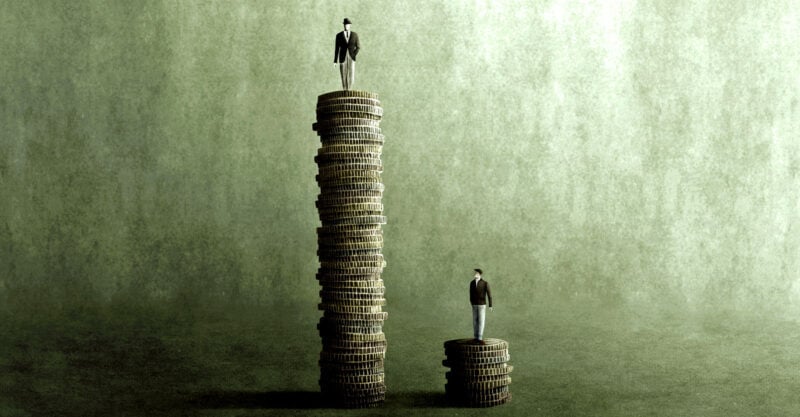
By Brett Wilkins
U.S. Sen. Bernie Sanders (I-Vt.) reacted Wednesday to new government figures showing the wealthiest 1% of Americans now owns over one-third of the country’s wealth by reasserting calls for systemic reforms to tackle the highest economic inequality of any major developed nation in the world.
The nonpartisan Congressional Budget Office on Tuesday published Trends in the Distribution of Family Wealth, 1989 to 2019, a report revealing that while the total real wealth of U.S. families tripled over those 30 years, the growth was dramatically unequal.
“Families in the top 10% and in the top 1% of the distribution, in particular, saw their share of total wealth rise over the period,” the report notes.
“In 2019, families in the top 10% of the distribution held 72% of total wealth, and families in the top 1% of the distribution held more than one-third; families in the bottom half of the distribution held only 2% of total wealth.”
In a statement, Sanders said that “this report confirms what we already know: The very rich are getting much, much richer while the middle class is falling further and further behind, and being forced to take on outrageous levels of debt.”
“The obscene level of income and wealth inequality in America is a profoundly moral issue that we cannot continue to ignore or sweep under the rug,” the two-time Democratic presidential candidate argued.
 Jeff Stein
@JStein_WaPo
New CBO report: The poorest *half* of America — ~150 million people — hold only *2 percent* of the country’s total wealth Wealth of top 10 percent has grown markedly since 1989 That tiny little line at the bottom of this chart is half the country
|
The Congressional Budget Office report also highlights the persistent racial wealth gap in the United States.
In 2019, white families’ median wealth was 6.5 times that of Black families, 5.5 times that of Hispanic families, and 2.7 times that of Asian and other families.
Additionally, the publication shows that by 2019, student loan debt was the largest component of total debt for families in the bottom 25% — more than their mortgage and credit card debt combined.
Among Americans age 35 or younger, 60% of their debt burden was due to student loans.
President Joe Biden last month announced a plan to cancel $10,000 to $20,000 in federal student loan debt per borrower, depending upon income, a move that drew both praise and admonition from progressives like Sanders — who advocates canceling all educational debt and making all college tuition-free.
“A society cannot sustain itself when so few have so much while so many have so little,” the democratic socialist asserted. “In the richest country on Earth (That is a joke, anyone who believes that we are the richest country in the world is an idiot. That was true at one time. No LONGER. WE are a country that has no assets, only DEBTS! We no longer are an exporting nation and we know longer can feed our own nation let alone give away surplus to other nations like we used to. We are a nation which shows its greatest growth in HOMELESS AND HUNGRY people.), the time is long overdue for us to create a government and an economy that works for all of us, not just the 1%.” (BUT SOCIALISM IS NOT THE ANSWER)
Originally published by Common Dreams.
spacer
So, for all those foreigners who see Americans as wealthy folks living in huge houses, wasting food, power and water; burning fossil fuels as we drive are fancy expensive cars and fly around the world – ARE DELUSIONAL!
These Organizations that paint Western Society as the wicked demon who is robbing all the world’s resources and causing all their problems ought to be defunded and shut down.! When our nation was blessed and prosperous and people were earning a good living, the USA like every other Nation before us went through a period of thinking we made it all ourselves and some Americans became arrogant and proud. BUT WE HAVE FALLEN! Believe me, as a Nation. We are falling of a cliff with little hope in sight. Which is true of the WORLD. Without the intervention of the Almighty GOD we are all in trouble.
spacer
IN spite of what the Environmentalist want you to believe the World’s population is not experiencing any massive increase. In truth, population in general is on the decrease, according to the United Nations.
spacer
The world population will pass 8 billion at the end of 2022
Since 1975 the world has been adding another billion people every 12 years.
It passed its last milestone – 7 billion in 2011. And, by the end of 2022, it will pass another one: there will be 8 billion people in the world.
While this rate of absolute growth is similar to previous decades, the growth rate continues to fall. Since 2019, the global population growth rate has fallen below 1%.
That’s less than half its peak rate of growth – of 2.3% – in the 1960s.
As global fertility rates continue to fall (see below), this rate will continue to fall.
spacer
The Climate-Justice Movement Is Bad for Climate and Justice
The Climate-Justice Movement Is Helping Neither the Climate Nor Justice. Nor is it a movement, actually.
By Oct 13, 2022
Environmental justice activists,” reports E&E Daily, “consider their success in stopping passage of a permitting reform bill last month their movement’s highest profile achievement to date.” You might wonder why the movement doesn’t instead consider its biggest success to be the passage of the biggest climate bill in American history the month before. The answer is that many environmental-justice groups opposed that bill. (“After careful study of the language of the Inflation Reduction Act of 2022, Climate Justice Alliance concludes that the harms of the bill as it is currently written outweigh its benefits,” stated the Climate Justice Alliance.)
You might also wonder why the climate-justice movement would oppose reforms to permitting given that the existing permitting process makes building any of the infrastructure needed for a green-energy transition difficult to impossible. The reason is that the environmental-justice movement believes the permitting process makes it too easy to build new projects. The movement wants to make it even harder.
spacer
spacer
spacer
spacer
spacer
Cybersecurity experts warn that official Cop27 climate app requires access to a user’s location, photos and even emails

The revelation, as more than 25,000 heads of state, diplomats, negotiators, journalists and activists from around the world gather at the climate summit that starts in Sharm el-Sheikh on Sunday, has raised concerns that Egypt’s authoritarian regime will be able to use an official platform for a United Nations event to track and harass attendees and critical domestic voices.
spacer
For more related information on this topic please see my post:
NEOM – Welcome to the FUTURE!
Look for the section starting with the following:
Red Sea cables: How UK and US spy agencies listen to the MiddleEast
spacer
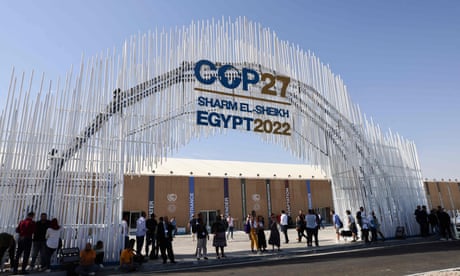
The official Cop27 app, which has already been downloaded more than 5,000 times, requires sweeping permissions from users before it installs, including the ability for Egypt’s ministry of communications and information technology to view emails, scour photos and determine users’ locations, according to an expert who analysed it for the Guardian.
This data could be used by Abdel Fatah al-Sisi’s regime to further crack down on dissent in a country that already holds about 65,000 political prisoners. Egypt has conducted a series of mass arrests of people accused of being protesters in the lead-up to Cop27 and sought to vet and isolate any activists near the talks, which will see governments attempting to hammer out an agreement over dealing with the climate crisis.
“This is a cartoon super-villain of an app,” said Gennie Gebhart, the Electronic Frontier Foundation’s advocacy director. “The biggest red flag is the number of permissions required, which is unnecessary for the operation of the app and suggests they are trying to surveil attendees.
“No reasonable person will want to consent to being surveilled by a nation state, or having their emails read by them, but often people click these permissions without thinking much.”
She added: “I can’t think of a single good reason why they need these permissions. It’s an open question how this information will be used – it raises a lot of scary possibilities. It may well have a silencing effect in that people self-censor when they realize they are being watched in this way. It can have a chilling effect.”
Hussein Baoumi of Amnesty International told the Guardian that tech operatives working for the rights organisation had examined the app and flagged a number of concerns prior to Cop27. The app was able to access users’ camera, microphone, Bluetooth and location data as well as pair two different apps.
“It can be used for surveillance,” he said.
Baoumi added: “The issues they found were primarily the permissions it asks for. If granted, it allows the app to be used for surveillance against you. It collects data and sends them to two servers, including one in Egypt. The authorities don’t say what they’re doing with this data, and they’re able to use this app for mass data collection from everyone using it.”
Amr Magdi of Human Rights Watch said that his organisation had also assessed the app and found that it “opens doors for misuse”.
Magdi added that conferences like Cop27 are “an excellent chance from a security perspective for information gathering,” including for certain activists “they want to know more about”.

Rights activists in Egypt flagged concerns about the Cop27 app almost immediately after it became available.
“You can now download the official #Cop27 mobile app but you must give your full name, email address, mobile number, nationality and passport number. Also you must enable location tracking. And then the first thing you see is this,” tweeted Hossam Baghat, the head of the Egyptian Initiative for Personal Rights, linking to an app screen showing the face of the Egyptian president.
He then tweeted a screenshot of the app’s terms and conditions, which read: “Our application reserves the right to access customer accounts for technical and administrative purposes and for security reasons.”
Digital surveillance of Cop27 attendees comes atop a highly developed infrastructure for dragnet surveillance of Egypt’s citizens’ communications, prompted in large part by Egyptian officials’ fears of the power of digital communications and their relationship with the popular uprising of 2011. This includes deep packet inspection technology provided by an American company in 2013, allowing authorities to monitor all web traffic moving through a network. The Egyptian government also blocks online access to over 500 websites, including the country’s lone independent news outlet Mada Masr, using technology provided by Canadian company Sandvine.
Surveillance by major telephone providers such as Vodafone allows the Egyptian authorities direct access to all users’ phone calls, text messages and information. One Cop27 attendee said that Vodafone was distributing free sim cards to conference attendees on arrival in Sharm el-Sheikh airport.
“The Cop27 app is really part of the wider surveillance structure in Egypt,” Baomi said. “This app is coming from a country doing mass surveillance unapologetically on its own population. It makes sense that, of course, the Egyptian government’s app can be used for surveillance, to collect data and use it for purposes unconnected to Cop27. It’s sad but expected from Egypt.”
Rights activists and members of Egyptian civil society critical of the government have been subject to targeted surveillance by the Egyptian authorities for years, raising concerns about the risks for high-profile activists attending Cop27. The Egyptian Initiative for Personal Rights and Citizen Lab identified one “ongoing and extensive phishing campaign against Egyptian civil society”, in 2017 targeting organizations working on human rights issues, political freedoms and gender as well as individual targets such as lawyers, journalists and activists. Four years later, Citizen Lab identified a fresh targeted hacking attempt against the phone of a prominent former Egyptian opposition leader based overseas.
South Sinai governor Khaled Fouda also recently boasted to a domestic cable channel about the level of surveillance at Cop27, including cameras in the back of taxis feeding footage to a local “security observatory”.
“Sisi’s idea of ‘security’ is mass spying on everyone,” Magdi tweeted in response.
The Cop presidency and the Egyptian ministry of foreign affairs were approached for comment.
spacer
